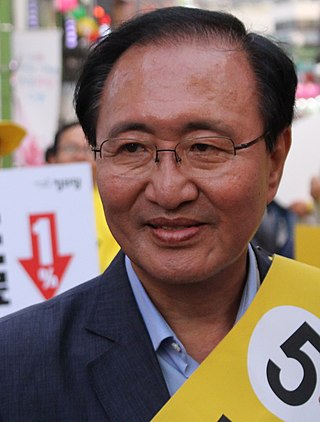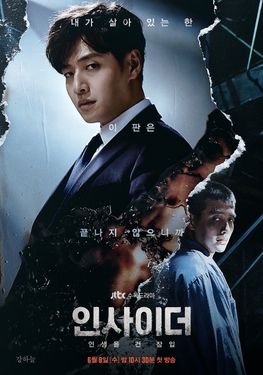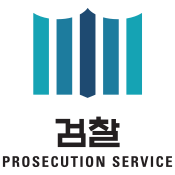
Cheong Wa Dae, also known as the Blue House in English, is a public park that formerly served as the presidential residence and the diplomatic reception halls of South Korea from 1948 to 2022. It is located in the Jongno district of the South Korean capital city of Seoul, behind Gyeongbokgung Palace.

Lee Myung-bak, often referred to by his initials MB, is a South Korean businessman and politician who served as the 10th president of South Korea from 2008 to 2013. Before his presidency, he was the CEO of Hyundai Engineering and Construction, and the mayor of Seoul from 2002 to 2006.

Presidential elections were held in South Korea on 19 December 2007. The election was won by Lee Myung-bak of the Grand National Party, returning conservatives to the Blue House for the first time in ten years. Lee defeated Grand Unified Democratic New Party nominee Chung Dong-young and independent Lee Hoi-chang by a nearly 2-to-1 margin, the largest since direct elections were reintroduced in 1987. It also marked the first time a president-elect in Korea was under investigation by a prosecutor. Voter turnout was 63%, an all-time low according to the National Election Commission.

Providence, better known as JMS, is a Christian new religious movement founded by Jung Myung-seok in 1980 and headquartered in Wol Myeong-dong, South Korea. Providence has been widely referred to by international media as a cult.

Roh Hoe-chan was a South Korean politician. He was a member of the 17th, 19th, and 20th National Assemblies. Roh was involved with multiple progressive-leaning parties, lately with the Justice Party from 2012 until his death in 2018.

Roh Moo-hyun was a South Korean politician and lawyer who served as the ninth president of South Korea between 2003 and 2008.

The Lee Myung-bak government was the fifth government of the Sixth Republic of South Korea. It took office on 25 February 2008 after Lee Myung-bak's victory in the 2007 presidential elections. Most of the new cabinet was approved by the National Assembly on 29 February. Led by President Lee Myung-bak, it was supported principally by the conservative Saenuri Party, previously known as the Grand National Party. It was also known as Silyong Jeongbu, the "pragmatic government", a name deriving from Lee's campaign slogan.
Lee Sang-don is a South Korean legal scholar and a conservative liberal political activist. His liberal philosophy was influenced by American conservatism and neoconservatism, but he is critical of South Korean conservatism. He currently works as a professor at Chung-Ang University. He is a conservative pundit well known for expressing criticisms towards the Lee Myung-bak government. He received criticisms from a group of pro-Lee Myung-bak lawmakers for participating in the restructure of the Saenuri Party in the past due to his distance with Lee Myung-bak.
In the Lee Myung-bak rat poster incident in Seoul, South Korea, university instructor Park Jeong-su (박정수) was indicted by the South Korean authorities for drawing a face of a rat on a promotional poster for the 2010 G-20 Seoul summit. The conservative Lee Myung-bak government was criticized for encouraging institutionalized censorship and abuse of authority, while the Supreme Prosecutors' Office of the Republic of Korea (SPO) was accused of being overly-supportive of the government.
During the 2007 South Korean presidential election, there were allegations made about presidential candidate Lee Myung-bak's relationship with a company called BBK. In 1999, Lee would meet Kim, with whom he established BBK and the LKE Bank. Their business enterprise went bankrupt less than a year later. Kim was investigated for alleged involvement in the massive embezzlement and for alleged stock price-manipulation.

The Democratic Party, formerly the Democratic United Party until 2013, was a liberal political party in South Korea, and for the duration of its existence the country's main opposition force.
The 2008 Grand National Party Convention is a political scandal in the South Korean politics that exposed higher-level political corruption within the ranks of the Lee Myung-bak government. The connections surrounding the Lee Myung-bak government has also affected the performance of the Grand National Party. A GNP lawmaker, Koh Seung-duk, was instrumental of exposing it by reporting his knowledge about the corruption incident to the Seoul Central District Prosecutors’ Office.
The MOFAT Diamond Scandal involves allegations against a senior South Korean government official accused of insider trading and stock-price manipulation in collaboration with CNK International, a mining company that secured the rights to a diamond mine in Cameroon.
The South Korean illegal surveillance incident was alleged to have occurred in 2010 when the Civil Service Ethics Division (공직윤리지원관실) under the Prime Minister's Office of South Korea inspected a civilian, a political action that is illegal under the South Korean conventions. The incident re-emerged in early 2012 as the election approached.

Park Young-sun is a South Korean journalist-turned politician previously served as the second Minister of SMEs and Startups under President Moon Jae-in from April 2019 to 2021 and the first woman to lead SME-specialised government entity since its creation in 1996. Park is also a four-term parliamentarian of Democratic Party.

Yoon Suk Yeol is a former South Korean politician and former prosecutor. He has been the 13th president of South Korea since 2022. Following his impeachment, his powers are currently suspended. Yoon was born in Seoul and earned two degrees from Seoul National University. In his capacity as chief of the Seoul Central District Prosecutor's Office, he played a key role in convicting former presidents Park Geun-hye and Lee Myung-bak of abuse of power. In 2019, then-president Moon Jae-in appointed Yoon as prosecutor general of South Korea from 2019 to 2021. During Yoon's leadership, the Supreme Prosecutor's Office conducted embattled investigations into Cho Kuk, an influential figure in the Moon administration, that led to Cho's resignation as minister of justice. Yoon's clashes with the Moon administration prior to his resignation as prosecutor general in March 2021 led to his rise as a potential presidential candidate among conservative voters. He is currently incarcerated since January 15th, 2025 at an unknown detention center in South Korea.

Kim Oh-soo is a South Korean prosecutor and the Prosecutor General. He previously served as the Deputy Minister of Justice from 2018 until 2020, and briefly the interim Minister of Justice following the resignation of Cho Kuk.

Insider (Korean: 인사이더) is a 2022 South Korean television series starring Kang Ha-neul, Lee Yoo-young, and Heo Sung-tae. It aired on JTBC from June 8 to July 28, 2022, every Wednesday and Thursday at 22:30 (KST) for 16 episodes.

Han Dong-hoon is a South Korean politician and prosecutor who served as the 69th Minister of Justice from May 2022 to December 2023 under the cabinet of Yoon Suk Yeol. He was a leader of People Power Party from July to December 2024. Before joining politics, Han played a key role as an anti-corruption prosecutor alongside Yoon Suk Yeol in convicting former presidents Park Geun-hye and Lee Myung-bak, Samsung executive Lee Jae-yong, and family members of former minister of justice Cho Kuk. Han served as a principal deputy when Yoon held senior positions in the Supreme Prosecutors' Office of Korea.

Jeong Hyeong-sik, also romanized as Cheong Hyungsik, is a South Korean jurist who serves as a justice of the Constitutional Court of South Korea. He was nominated by President Yoon Suk Yeol on November 16, 2023, and officially appointed to the court on December 18, 2023.














